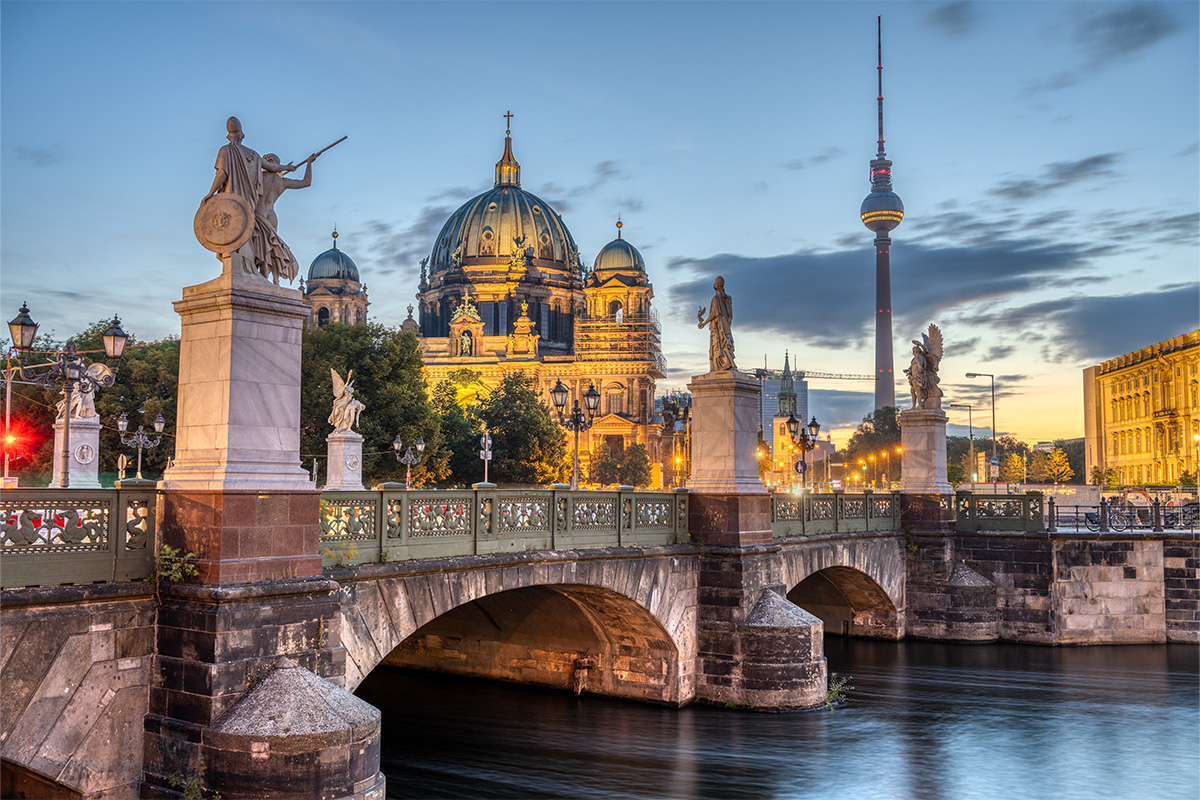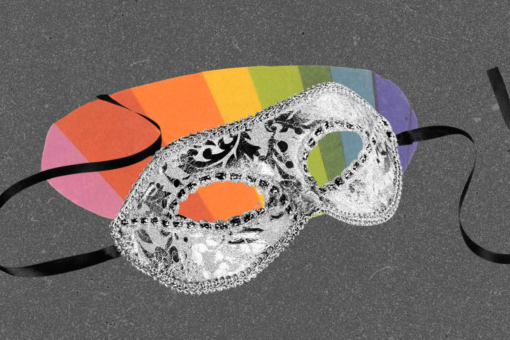It’s Passover 2021 and I am haunting the shelves of my local Berlin Kaufland like the apparition of Fruma Sarah, desperately searching for a snack made without one of the (what feels like a thousand) verboten-for-Passover ingredients, when out of the corner of my eye I catch sight of a yellow box with white letters spelling out “Matzen” — German for matzah.
I freeze in disbelief for a moment, unable to comprehend my discovery; in a city where it often feels like the tragedy of the past swallows the living Jewish present like a yawning black hole, where my dark hair and narrow features that at home are immediately recognizable as Jewish are now read as Italian, Turkish, Iranian, but never Ashkenazi, this moment of recognition feels like the discovery of something familiar and friendly in an alien landscape. But as I move down the grocery store aisle, hands itching for the familiar square box, I realize that something is wrong: “Matzah — the bread for a conscious diet” proclaims the box. There is no reference to Passover, no sigil or star marking its contents as kosher, no Hebrew letters branching like budded twigs in spring; this matzah has been demoted to a health food, a mere cracker.
Yes, this is a bread of affliction, but not the kind my ancestors hastily baked before their flight from Egypt. Instead, this affliction is living in the shadow cast by the memory of annihilation — the strange space I occupy as an American Jew living in Berlin today.
This moment of misrecognition in the grocery store isn’t my first rodeo — it’s not the first time I’m reflecting on my strange and liminal position as a living representation of something largely relegated to the past, something more visible in memorials than in the faces of my new home. These questions emerge again and again, often in inopportune and arbitrary moments, like when I have to go to the gift shop of Berlin’s Jewish Museum at Hanukkah because it’s the only place that sells candles that fit my menorah. Or when I spend the high holy days at home, livestreaming the service from my childhood temple instead of going to a synagogue here, the ones guarded by barricades and police booths. Or when I get asked not to come back to one of the only bagel shops in the city after complaining about the wait and spend a week crying about the loss, not of my favorite everything bagel, but of my tenuous connection to home.
The first time I was ever confronted with the idea that being Jewish here was different from being Jewish at home — my first rodeo — came a few weeks after I first arrived in Berlin as a college junior for my year abroad. A German student in one of my classes, who astonishingly shared my very Jewish last name, asked me if I was Jewish, “because I’m not,” he finished. “Me neither,” I replied quickly, lying. For weeks afterwards, my thoughts would carry me back to that moment: Why did I lie? Was I ashamed? Was I afraid? I didn’t find an answer that year, and ten years later, I still don’t have one.
Being Jewish today in Germany is more than complicated; it’s heavy and it’s inscribed into the streets and buildings like bullet holes left by a forgotten war. Maybe that’s being Jewish anywhere, living with a long and hard history, but here I often feel overshadowed by ghosts. There’s me — the living, breathing, crying girl who is always left hungry and unsatisfied after a trip to the grocery store during Passover — and then there’s them: the names inscribed into the gold plaques in front of the houses they lived in before they were deported and murdered, the statues and memorials which eat you up if you get too close, the weighty absence. A few steps from my apartment door are four of these gold bricks, “Stolpersteine,” or stumbling stones, which share the names and fates of my neighbors from another time; three were murdered among the birch trees of Auschwitz, one killed at Theresienstadt. On January 27th, the Day of Remembrance to the Victims of the Holocaust in Germany, I find that these golden squares have been scrubbed clean and gleaming with a toothbrush, each one wreathed in candles and flowers. What is my hunger compared to theirs? I say hello to them each morning on my walk to the train, imagining walking alongside them on the same pavement.
But remembering isn’t living, and it’s too easy here to forget about life in the shadow of death.
So food becomes my way to celebrate being here and alive, being Jewish, occupying the same streets and benches my four temporally-displaced neighbors once did. The first time I really felt at home in Berlin was in a restaurant called Beba, where the pickles on their mezze platter tasted just like the ones my Zayde would make in our garage growing up, the kind that would sit in huge buckets until you nearly forgot about them and burn your tongue with acidic tang when you remembered.
But also on my plate were foods from a diaspora that wasn’t mine: Levantine labneh, Iraqi eggplant, Sephardic tomato stew. My plate wasn’t a hierarchy, expressing one flat time or place, but a multiplicity, a contradiction: a life. And so food became a pathway for me to explore my identity. I copied the flavors I tasted in this restaurant, trying to make my own roasted beets in an oven without dials. For Hanukkah, I ran around the city trying to find a gluten-free doughnut to share with some Scandi-Jewish friends, which we gleefully ate in a kitchen full of burning oil because we fucked up the latkes. I relished trying every bagel spot in town, seeking out the kind encrusted with too many poppyseeds and onion bits and flaky salt. And I love giving recommendations to visiting friends and strangers, assuring them that Jewish food — like Jewish life — can still be found here.
Passover is a holiday that’s fundamentally about memory, like most Jewish holidays. But this one uses food as its primary tool, depriving us to help us remember. Honestly, Passover was always my least favorite holiday growing up; the Ring Jells and coconut macaroons in round tins didn’t make up for the three-hour preamble to dinner or the taste of matzah or the constant query “is this K for P?” (the answer was almost always no). But it’s a holiday that has taken on a new flavor for me here, like dipping parsley does when coated in tears. On this night, food mortars together the bricks of my Jewish identity like charoset, linking me up by my palate to those who share my fate of living in the aftermath. And I am here, cooking, eating, remembering and living — breaking the bread of affliction.



